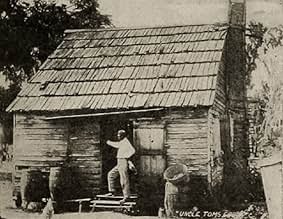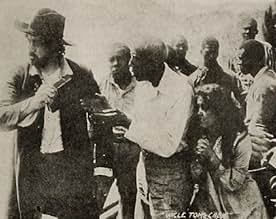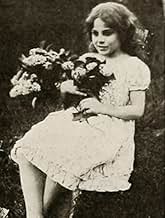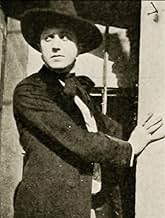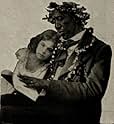A black and white silent film based on Harriet Beecher Stowe's novel documenting the life and times of Uncle Tom.A black and white silent film based on Harriet Beecher Stowe's novel documenting the life and times of Uncle Tom.A black and white silent film based on Harriet Beecher Stowe's novel documenting the life and times of Uncle Tom.
- Awards
- 1 win total
Irvin Willat
- George Shelby Jr. - as an adult
- (unconfirmed)
- (uncredited)
- Director
- Writers
- All cast & crew
- Production, box office & more at IMDbPro
Storyline
Did you know
- ConnectionsReferenced in The Simpsons: Gorgeous Grampa (2013)
Featured review
This is the first time a back American actor played the part of Uncle Tom on screen (Lucas, an enormously important figure in African American theatre and film, also played the part on stage) but it is not the first time a black actor had played the lead in a film.
Black actors, including vaudevillians John and Mattie Edwards and Joseph Outen, had already starred in Sigmund Lubin's Coloured Comedies (see my review of Rastus Among the Zulus). While these films may not be terribly politically correct, they gave important opportunities to black performers and were very popular, especially in the South, presumably because of the sheer pleasure for African American cinema-goers to see black stars on the screen.
Lucas was also one of an all-black troupe who appeared in the sadly unfinished 1913 Biograph film Lime Kiln Field Day (pretty much a feature) starring black Ziegfield Follies star Bert Williams who would go on to star in further Biograph shorts in 1916.
One aspect to note in this version of the Stowe novel is the way the words of the foreword - "This is the story of an exotic race, whose ancestors, born beneath a tropic sun, were brought to the New World by heartless traders, and sold into slavery" - later unpleasantly (and absurdly) twisted to suggest that their coming was the cause of all the nation's problems in Griffith's prefatory titles to Birth of a Nation. Griffith also re-created the "cabin" for his racist film.
Black actors, including vaudevillians John and Mattie Edwards and Joseph Outen, had already starred in Sigmund Lubin's Coloured Comedies (see my review of Rastus Among the Zulus). While these films may not be terribly politically correct, they gave important opportunities to black performers and were very popular, especially in the South, presumably because of the sheer pleasure for African American cinema-goers to see black stars on the screen.
Lucas was also one of an all-black troupe who appeared in the sadly unfinished 1913 Biograph film Lime Kiln Field Day (pretty much a feature) starring black Ziegfield Follies star Bert Williams who would go on to star in further Biograph shorts in 1916.
One aspect to note in this version of the Stowe novel is the way the words of the foreword - "This is the story of an exotic race, whose ancestors, born beneath a tropic sun, were brought to the New World by heartless traders, and sold into slavery" - later unpleasantly (and absurdly) twisted to suggest that their coming was the cause of all the nation's problems in Griffith's prefatory titles to Birth of a Nation. Griffith also re-created the "cabin" for his racist film.
Details
- Release date
- Country of origin
- Language
- Also known as
- La cabaña del tío Tom
- Production company
- See more company credits at IMDbPro
- Runtime54 minutes
- Color
- Sound mix
- Aspect ratio
- 1.33 : 1
Contribute to this page
Suggest an edit or add missing content


